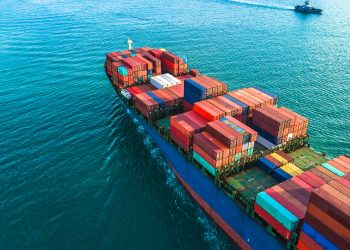Experiencing a recent rise in the number of enquiries relating to the transport of metal scrap in containers, the UK Club reiterated the CINS Metal Scrap Carriage Guidelines, published in January 2018, aiming to to reduce claims from the carriage of metal scrap by ensuring that it is properly packed, declared and carried.
Heavy pieces of metal scrap might damage soft sidewalls and floor of containers if wrong sizes of metal scrap are loaded or the wrong loading method is used, while scrap containing radioactivity is a further issue.
Specifically, metal scrap is considered waste, under applicable national and international regulations, and shippers are required to make sure their shipments are in full compliance.
Other potential dangers are fire, autoignition/explosion, damage to the container, risk of leakage (e.g. from motor parts not being drained from any remaining oil or fluids) or overweight.
As such, the CINS advises:
-Agents / Shipping lines
- Request a shipper’s declaration that the cargo is free from radioactivity.
- Request information regarding scrap nature and stuffing. For EU Basel Convention Annex VII is required, additionally international, national and local legislation may apply. Ensure that the customer is aware and compliant with the requirements for waste/scrap movements.
-Shipper / Consignor / Customer / Container Packer
- Classify the scrap, to fully comply with waste movement international and local regulations in force.
- Drain off all liquids like oil, fuel, water from cargoes like transmissions or motors.
- Protect container’s floor and sidewalls by using plywood sheets or liners.
- Ensure that loading operation is done with the container placed horizontally and not turned vertically.
- Do not load more than the permitted payload of this specific container unit or more than any permitted gross weight during the transport by local authorities. Verify gross weight.
- Any compaction of the cargo during packing is strictly forbidden. Compacting causes damage to container sidewalls and frames.
- Secure and lash larger pieces of scrap to prevent any movement.
- Ensure no load to container doors during whole transport. This ensures no damages to doors and possible safe opening of doors by consignee or checking authorities, like inspecting authorities. This is achieved by installing a bulkhead (see CTU Code).
-Intermodal Operators including Terminal Operators should alert the Container Operator or Carrier.
- Check for leakages.
- Check possible radioactivity if available at gate.
- Check for abnormal heat at the container walls. d. Check external visible container damages.






























































